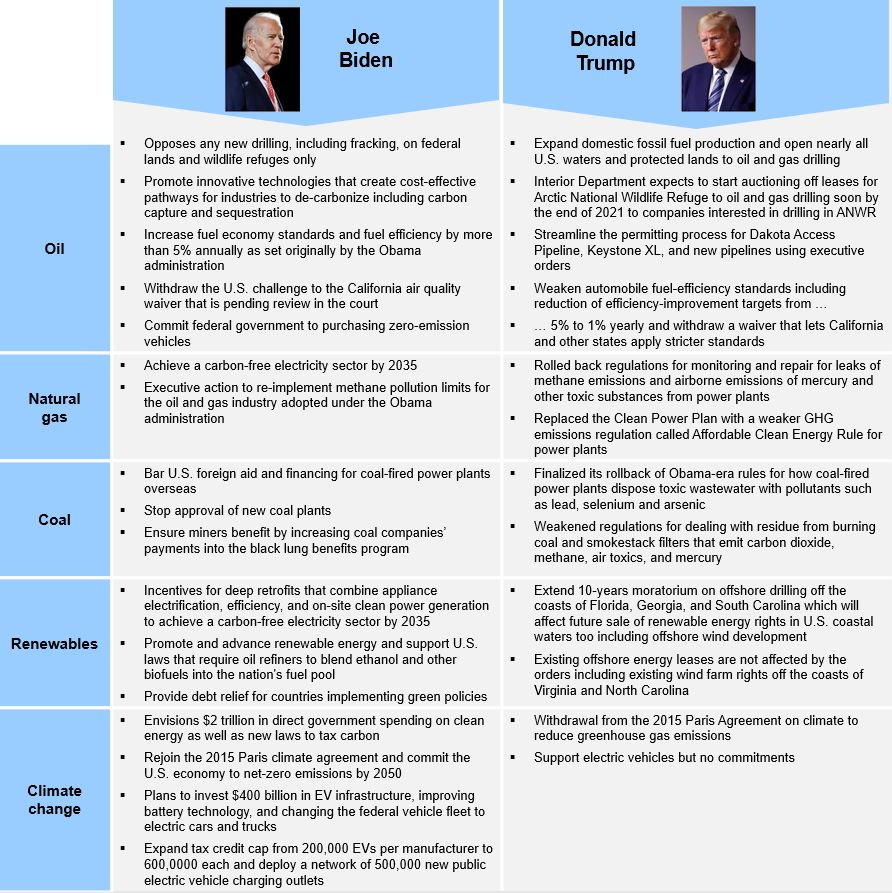What is Joe Biden's energy policy?

Energy policy plays a crucial role in shaping the future of a nation, and Joe Biden's energy policy is no exception. As the 46th President of the United States, Biden has outlined an ambitious plan to address the pressing issues of climate change, economic growth, and energy security. In this article, we will delve into the key components of Biden's energy policy and explore its potential implications on the environment, economy, and international relations.
- Background on Joe Biden
- The Importance of Energy Policy
- Overview of Joe Biden's Energy Policy
- Key Components of Biden's Energy Plan
- Impacts on the Environment and Climate Change
- Economic Implications and Job Creation
- Addressing Energy Security and Independence
- Challenges and Criticisms
- Comparison with Previous Administrations
- International Cooperation and Diplomacy
- Conclusion
- Frequently Asked Questions
Background on Joe Biden
Before we dive into his energy policy, it is essential to understand Joe Biden's background. Born in 1942, Biden is a seasoned politician who served as the Vice President under President Barack Obama from 2009 to 2017. Throughout his career, he has championed various causes, including climate change and renewable energy.
The Importance of Energy Policy
Energy policy shapes the way a country produces, consumes, and manages its energy resources. It determines the sources of energy, the environmental impact of energy production, and the economic implications associated with energy use. With the increasing concerns over climate change, transitioning to clean and renewable energy sources has become a global imperative.
Overview of Joe Biden's Energy Policy
Biden's energy policy is built on the premise of achieving a 100% clean energy economy and net-zero emissions by 2050. His plan aims to combat climate change, create millions of well-paying jobs in the renewable energy sector, and improve the overall health and well-being of communities affected by pollution.
Key Components of Biden's Energy Plan
Some of the key components of Biden's energy plan include:
- Investing in clean energy research and development
- Accelerating the adoption of electric vehicles
- Upgrading infrastructure to support clean energy
- Improving energy efficiency in buildings
- Revitalizing the coal-impacted communities
Biden's plan also emphasizes the need to rejoin the Paris Agreement and engage in international cooperation to address the global climate crisis.
Impacts on the Environment and Climate Change
Biden's energy policy aims to prioritize environmental conservation and combat climate change. By transitioning to renewable energy sources and reducing dependence on fossil fuels, the policy seeks to reduce greenhouse gas emissions and mitigate the adverse effects of climate change. This approach aligns with the global goals of limiting global warming to well below 2 degrees Celsius above pre-industrial levels.
Economic Implications and Job Creation
Biden's energy policy envisions a clean energy revolution that not only addresses climate change but also stimulates economic growth. By investing in renewable energy infrastructure and technologies, the policy aims to create millions of well-paying jobs in industries such as solar power, wind energy, and battery storage. Additionally, it seeks to provide support and resources for communities affected by the decline of fossil fuel industries.
Addressing Energy Security and Independence
Biden's energy policy recognizes the importance of energy security and independence for the United States. By transitioning to clean energy sources, the policy aims to reduce reliance on foreign oil and promote domestic energy production. This shift would enhance national security, reduce vulnerability to oil price fluctuations, and decrease the geopolitical tensions associated with energy dependence.
Challenges and Criticisms
While Biden's energy policy has gained support from environmentalists and clean energy advocates, it also faces challenges and criticisms. Some argue that the transition to clean energy may result in job losses in traditional energy sectors. Others express concerns about the costs associated with implementing such a comprehensive plan.
Comparison with Previous Administrations
Biden's energy policy marks a significant departure from the policies of previous administrations. It places a greater emphasis on clean energy, climate change mitigation, and international cooperation. By rejoining the Paris Agreement and reversing policies that favored fossil fuels, Biden aims to position the United States as a global leader in the fight against climate change.
International Cooperation and Diplomacy
Biden's energy policy recognizes that addressing climate change requires international cooperation and diplomacy. By actively engaging with other nations, the policy seeks to establish global partnerships to tackle the shared challenges of transitioning to clean energy and reducing greenhouse gas emissions.
Conclusion
Joe Biden's energy policy sets forth an ambitious vision for a sustainable future. By prioritizing clean energy, combating climate change, and creating economic opportunities, the policy aims to address the pressing challenges of our time. As the implementation of Biden's energy plan unfolds, its impacts on the environment, economy, and international relations will become clearer.
Frequently Asked Questions
1. What are the main goals of Joe Biden's energy policy?
Joe Biden's energy policy aims to achieve a 100% clean energy economy and net-zero emissions by 2050. The policy also focuses on creating jobs in the renewable energy sector and revitalizing coal-impacted communities.
2. How does Biden plan to transition to clean energy sources?
Biden plans to transition to clean energy sources by investing in research and development, accelerating the adoption of electric vehicles, upgrading infrastructure, improving energy efficiency, and supporting renewable energy industries.
3. What impact will Biden's energy policy have on the economy?
Biden's energy policy aims to stimulate economic growth by creating millions of well-paying jobs in the renewable energy sector. Additionally, it seeks to provide support for communities affected by the decline of fossil fuel industries.
4. How does Biden's energy policy differ from previous administrations?
Biden's energy policy marks a departure from previous administrations by placing a greater emphasis on clean energy, climate change mitigation, and international cooperation. It seeks to rejoin the Paris Agreement and position the United States as a global leader in the fight against climate change.

Leave a Reply